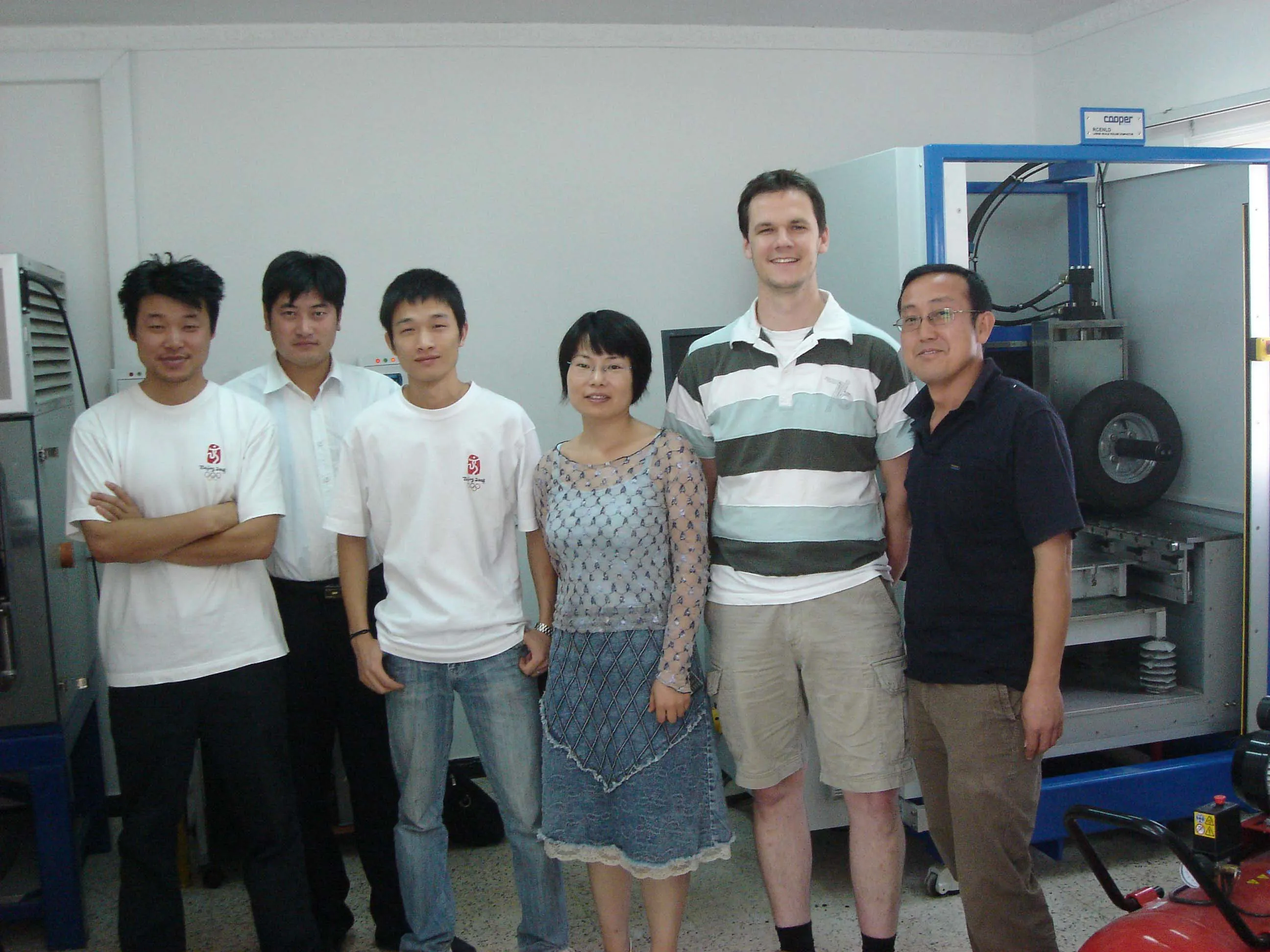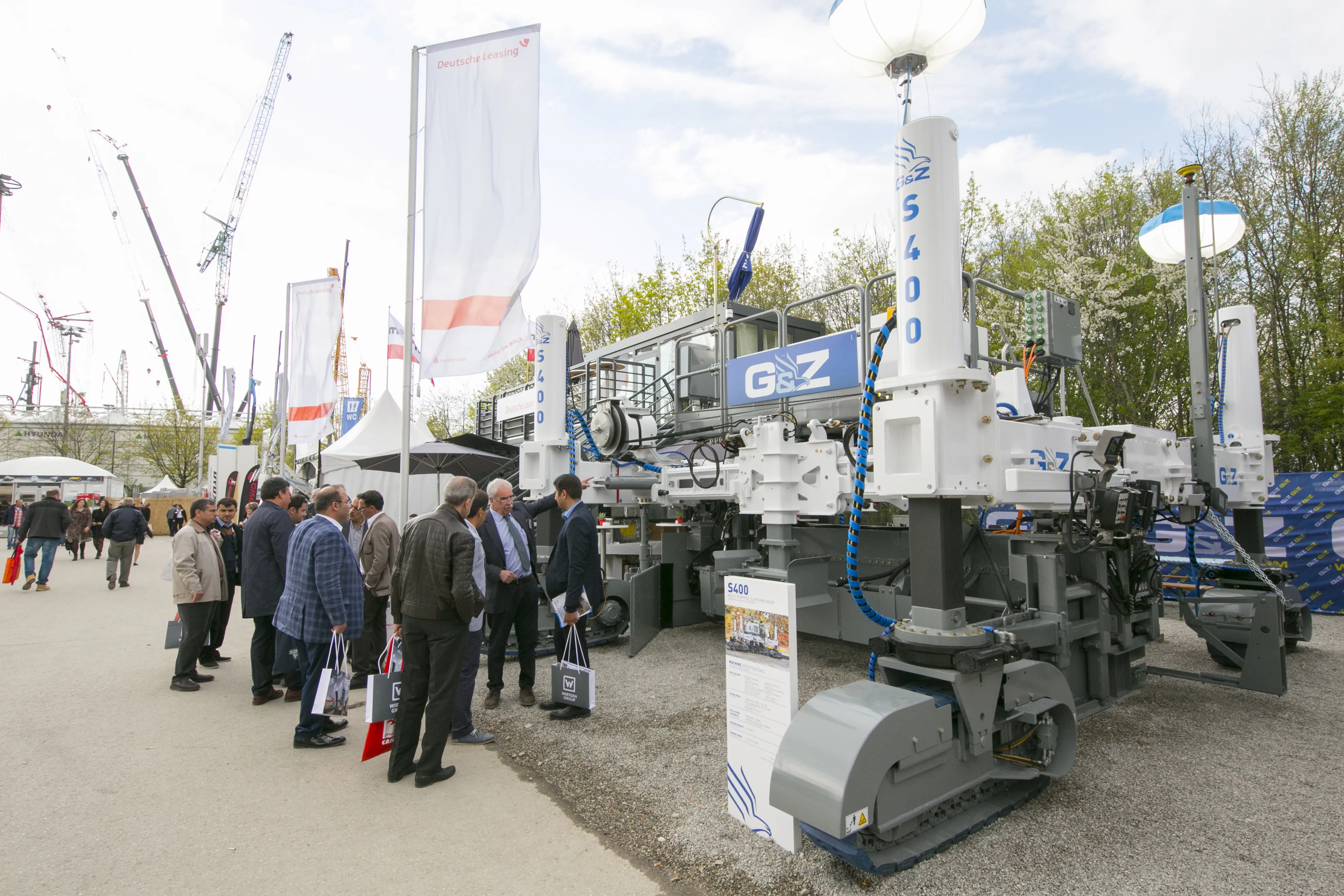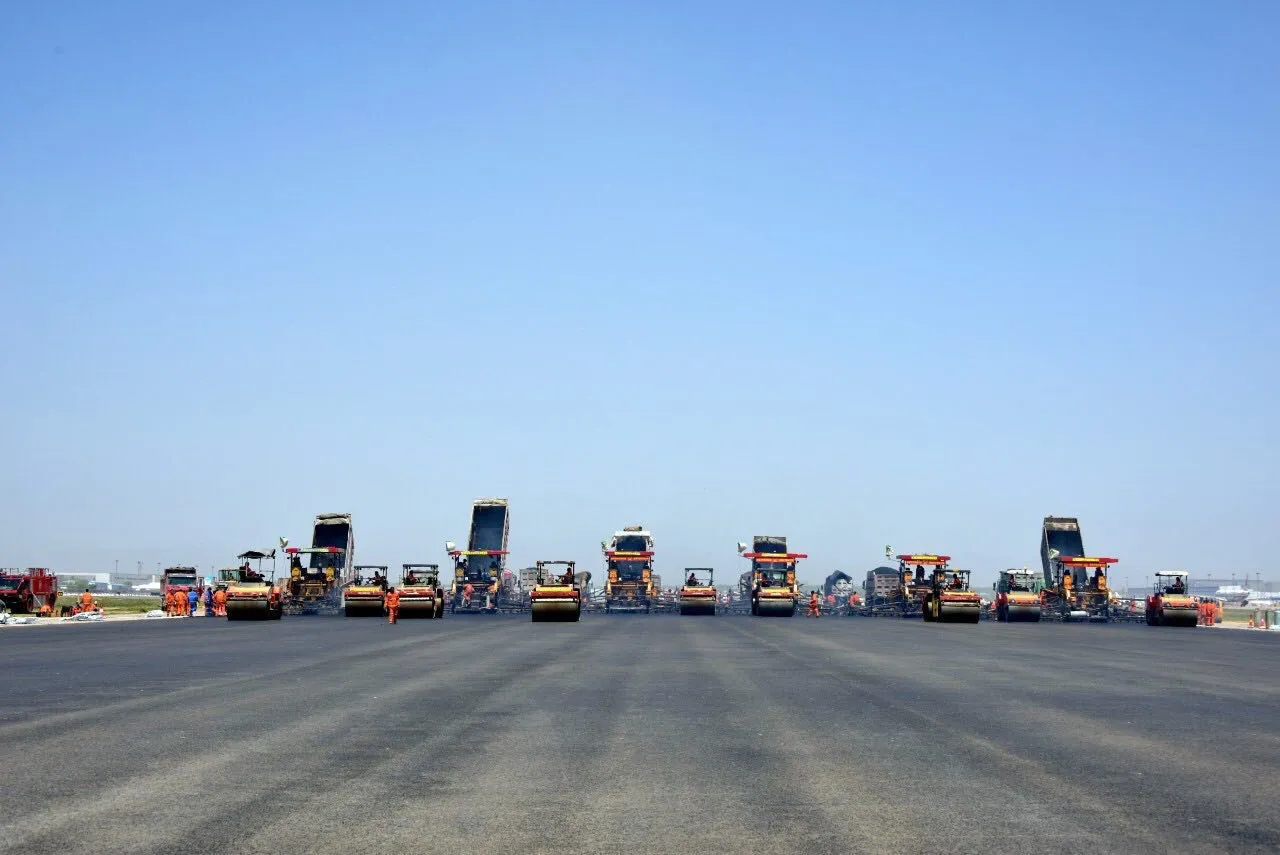A fleet of 53 Dynapac machines is being used by a Chinese consortium to build the central and western sections of the 1,216km Algerian East-West Expressway. The consortium comprises CITIC and CRCC and was awarded the contract for the 169km central and 359km western sections of highway.
March 1, 2012
Read time: 2 mins

A fleet of 53 206 Dynapac machines is being used by a Chinese consortium to build the central and western sections of the 1,216km Algerian East-West Expressway.
The consortium comprises CITIC and CRCC and was awarded the contract for the 169km central and 359km western sections of highway.
To help meet the tight schedule, tough conditions and remote locations, CITIC-CRCC opted to buy equipment from Dynapac. The new Dynapac fleet comprises 20 F141C pavers; a F182CS paver; 18 CC624HFs and 14 CC622HF tandem rollers. The machines are being used to pave and compact the base course, binder course and wearing course.
French asphalt mixtures and testing procedures have been specified, and the testing laboratories were equipped with large wheel trackers, automatic large roller compactors, trapezoidal bending machines and Duriez testing machines. Among those supplying equipment is UK company5941 Cooper Technology.
"The French asphalt mixture design method is an advanced, performance-based asphalt mixture design method. French asphalts such as EME2 are expensive due to a bitumen content which is around 1% higher than in conventional mixes, but prove cost effective in terms of life cycle cost analysis," said Mr Jia Yu, Vice Chief Engineer at the Jiangsu Transportation Research Institute in China.
For high modulus asphalt concrete mixture, there are two categories: EME is used in base course and BBME is used in binder and surface course. The two materials are both used in the Algeria East-West Expressway with a wearing course of BBMA.
The consortium comprises CITIC and CRCC and was awarded the contract for the 169km central and 359km western sections of highway.
To help meet the tight schedule, tough conditions and remote locations, CITIC-CRCC opted to buy equipment from Dynapac. The new Dynapac fleet comprises 20 F141C pavers; a F182CS paver; 18 CC624HFs and 14 CC622HF tandem rollers. The machines are being used to pave and compact the base course, binder course and wearing course.
French asphalt mixtures and testing procedures have been specified, and the testing laboratories were equipped with large wheel trackers, automatic large roller compactors, trapezoidal bending machines and Duriez testing machines. Among those supplying equipment is UK company
"The French asphalt mixture design method is an advanced, performance-based asphalt mixture design method. French asphalts such as EME2 are expensive due to a bitumen content which is around 1% higher than in conventional mixes, but prove cost effective in terms of life cycle cost analysis," said Mr Jia Yu, Vice Chief Engineer at the Jiangsu Transportation Research Institute in China.
For high modulus asphalt concrete mixture, there are two categories: EME is used in base course and BBME is used in binder and surface course. The two materials are both used in the Algeria East-West Expressway with a wearing course of BBMA.








